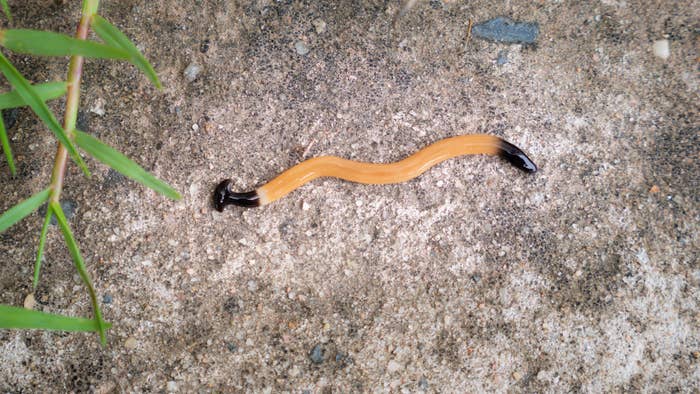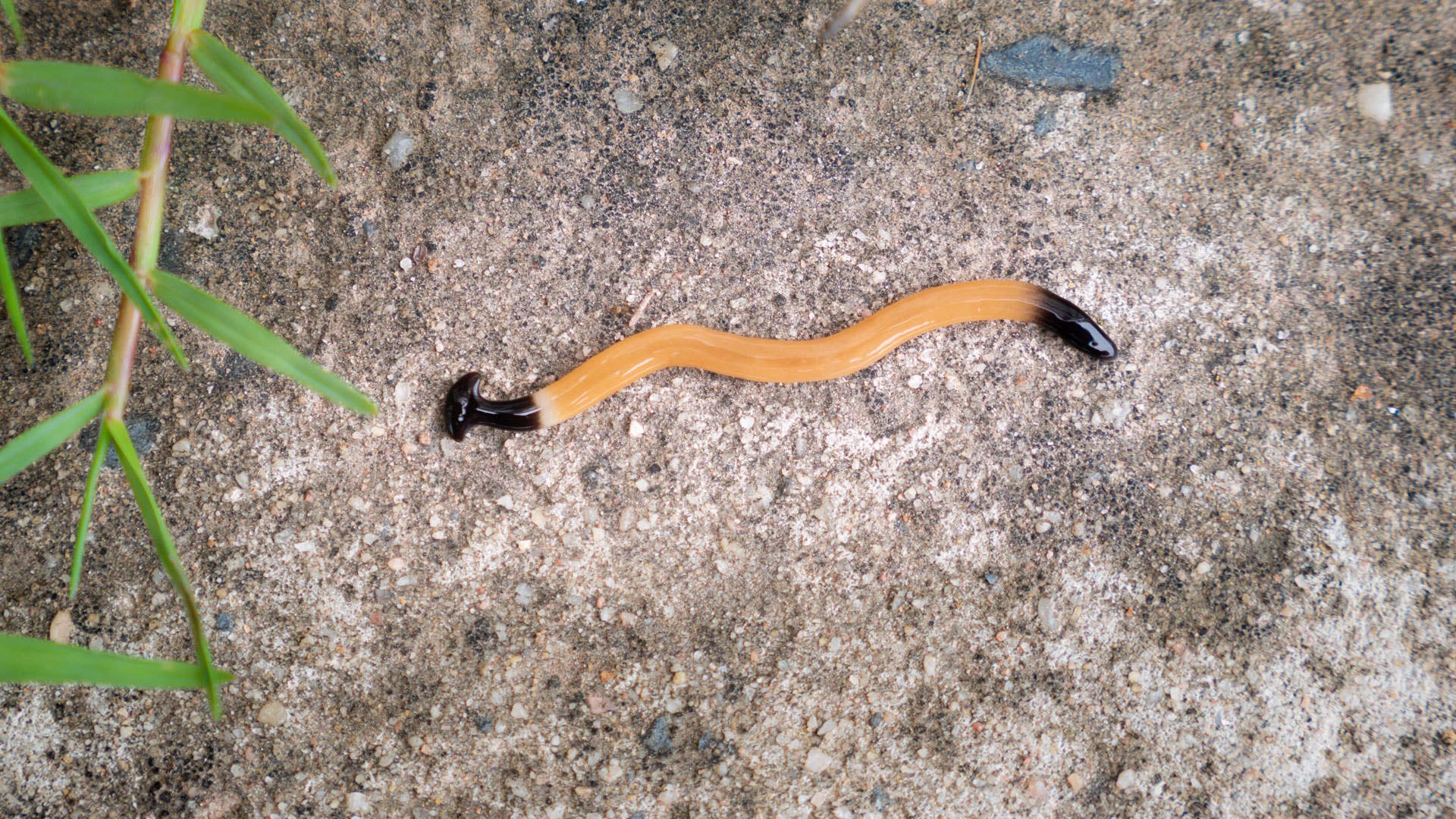
An invasive species of shovel-headed garden worms (which you can also reference as hammerhead worms, should you ever think about them again for whatever reason) has been sighted in plots throughout the Atlanta area. In fact, at the literal moment of this typing, the worms have been spotted 143 times by 135 observers in the region.
According to University of Georgia agriculture extension agent James Murphy, the snake-like worms can get nearly a foot-long, and they have their mallet-shaped domes to thank for their monikers (picture above should explain everything). Murphy also notes that, in lieu of its usual position on faces, the mouths of the creatures is actually halfway down their bodies.
More relevant to Georgians who grow flowers and vegetables, the worms are carnivorous. They usually eat earthworms, but can also "prey on other soil dwelling invertebrates." Also they sometimes get mistaken for snakes.
A study from Utah State University notes that they produce tetrodotoxin, the same neurotoxin emitted by pufferfish.
According to Murphy, the reason the worms use that toxin isn't conclusive, but it probably has to do with catching prey or preventing themselves from being eaten.
The worms are not believed to secrete neurotoxin to the point where it would be dangerous for humans, but you should still exercise caution in the event that you come across one.
Tetrodotoxin is considered very hazardous.
The species is believed to have been in the United States for almost 100 years, after finding its way to America through a potted plant from Asia. Murphy thinks new sightings might just be because of A.) The prevalence of cameras, and B.) The ability to easily identify species through easily available resources.
At the moment it doesn't sound like Georgia has any plan to prevent the worms' spread, which seems low priority due to the fact that they're mainly earthworms' problem for now. Note that earthworms are important (repeat, they are important), so bug invertebrate people need not look for any writers' email addresses.
"I don't think there's a need to sound an alarm just yet," said Murphy. Though he added that he believes it's "prudent" that sightings be reported to the proper authorities.
As for how to deal with them, the fact that they can replicate from cut body sections makes it inadvisable to dispose of them in that manner. Murphy says don't touch them with yours hands (see: the Tetrodotoxin thing), and if you have to get rid of them to use hot water or desiccate them by putting them in dry paper towels.
“If you were to slice one or take it and put it into a couple of pieces, it can absolutely reproduce into a fully living worm just from that cut piece,” Murphy said according to WSB-TV Atlanta.
“I’m usually a ‘live and let live.’ But in this case, it’s something that would probably be prudent to take action."

